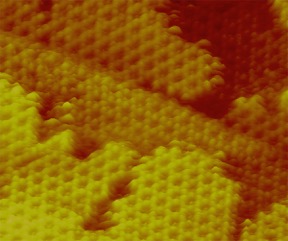To learn more and to view our Keynote Presentations, Posters, and Webinars, please visit our Meeting Page.
Important work for predicting charge transport in the large polaron regime in transition metal oxides for photo- and electrocatalysis applications.
Generative models learn data relationships that enable predictions in unexplored spaces, and provides guidance on how to deploy machine learning.
Recent paper in Nature by JCAP and University of Toronto researchers in Nature details selective conversion of CO2 into ethelyne.
The Science paper provides a technoeconomic and carbon emission analysis of possible products, offering targets that would need to be met
Vapor-fed reactors represent new paradigms for unprecedented control of local reaction conditions for CO2 reduction.
Efficient solar-driven CO2 reduction to CO was realized by integrating high-efficiency photovoltaics with reverse-assembled gas diffusion electrodes.
A look inside the labs at the Joint Center for Artificial Photosynthesis reveals the inventions and processes that yield groundbreaking discoveries in solar fuel. The work was published in PNAS.
An international team of researchers and JCAP scientists developed 19% efficient solar-fuels generator.
Learn more about JCAP talks at conferences and meetings, publications, research highlights, and Databases.














